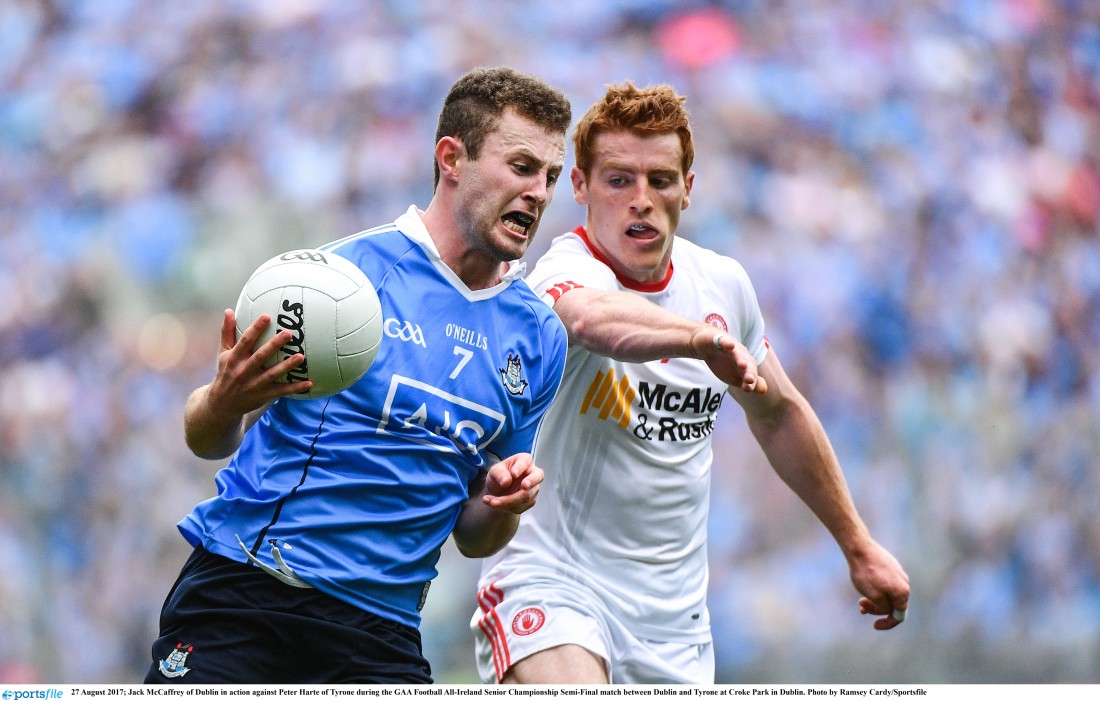FORMER Derry player Paul McFlynn believes that conditioning has improved the game of Gaelic football immeasurably.
He retired from the game back in 2006, but he says that the advancements in how teams prepare is dramatically noticeable.
“I am just glad I am not playing now because the pace of the game means I couldn’t play,” he said.
“The conditioning side of things has changed. I was looking at the Dublin players and the physique and the size of those boys is remarkable. To me the fitness demands since I retired have gone up so much. If you put the all the players who were playing in 2006, compare the preparation and conditioning that there is there now it is so different.”
There are a number of advantages to this advancement in the game according to McFlynn. One of them is the improvement in the health of players.
“It is a good thing. I was chatting to Michéal Kelly, the chiropracter from Sleacht Neill, and we were talking about how few of the Dublin players are getting injured.
“You never hear of them tearing a hamstring or pulling a quad. That’s the case with a lot of teams now. Whereas when we were playing you would hear of that all the time.
“There were boys carrying hamstrings and that sort of thing. That was a case of boys overdoing it and not being conditioned.”
Players are fitter and healthier and less prone to injury. Better fitness also means that teams like Dublin can play at a higher pace.
“The benefit of that is the pace that the game is being played at. If you got to watch those teams playing and the way that they can open up is great. That demands great speed of thought.”
Conditioning means that teams have greater speed of thought, and Flynn reckons that’s important when they are trying to take on defensive opponents.
“There is the argument that defensive football is not pretty, but there is something intriguing about it. You are faced with a team that is playing a blanket defence and they have to find a way around it.
“Dublin have to have the brain-power to find a way around that. They are able to come up with plans in such a short space of time, and break them down.
“To me that is intriguing to watch. That is a real tactical game.”
Tactics have advanced in line with the professional approach and McFlynn is amazed by the depth that teams go into.
“Everything is scrutinized now. Shot selection, turnovers, the scoring zone. That was coming in briefly, but that is really in now. When I went out to play we just played the game as it transpired.
“The other thing was you marked your man, and if your man scored two points then you were responsible for that. Now you go out and mark and it is zonal.
“You used to go out and mark a man and he was a speedster, there was no one to back you up, But now there is a security as there are numbers there to back you up. the flip side of that is that you need to be able to handle fast breaks.
“The likes of Jack McCaffrey can really break and that demands great aerobic fitness and that’s where the conditioning comes in again.
“When I started there were managers and trainers and they looked after everything, now there are coaches for every aspect of the game, for defensive areas, and for lines. The whole professional aspect has really brought the game on.”
Receive quality journalism wherever you are, on any device. Keep up to date from the comfort of your own home with a digital subscription.
Any time | Any place | Anywhere












